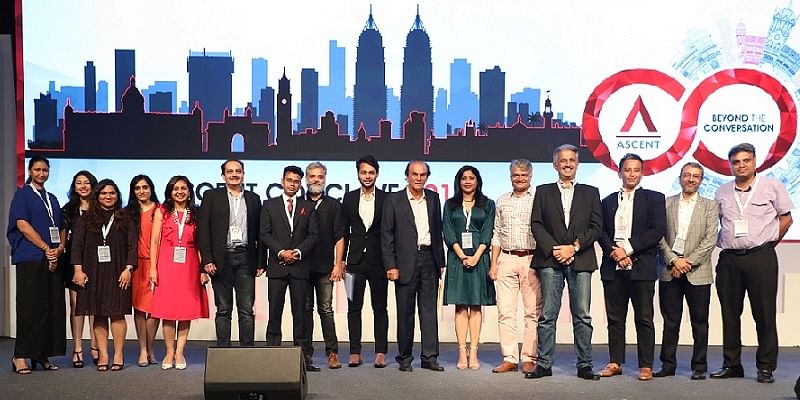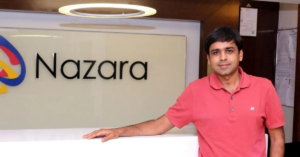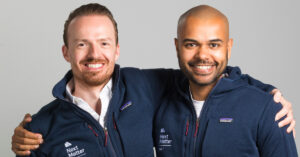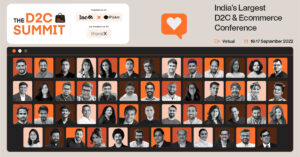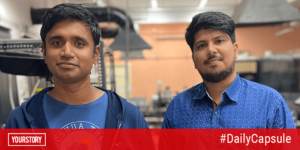ASCENT Foundation aims to enable success for high-potential growth-stage entrepreneurs via a peer platform for sharing experiences. It is an initiative of Harsh Mariwala, Founder and Chairman of consumer products giant Marico (see earlier podcast here).
Archanna Das, Head of ASCENT Foundation for the past six years, is a sustainability, brand and communication management professional with 18 years of experience. She enabled the scaling-up of its entrepreneur member base from 150 to over 700, with programme enhancements in curated knowledge sessions, mentoring, workshops, and large-format signature events.
She was earlier at HSBC India, GTL Limited and Faber Castell. Her educational background includes Indira Institute of Business Management and Mar Ivanios College, University of Kerala.
Archanna joins us in this extended interview on the vision, activities, and impacts of ASCENT, emerging trends in India, and tips for aspiring entrepreneurs.
Edited excerpts from the interview:
YS [YS]: What was the founding vision of ASCENT, and how is it supported?
Archanna Das [AD]: ASCENT Foundation is a not-for-profit expression of Harsh Mariwala (Chairman, Marico Ltd.) and his personal passion to identify and enable high-potential growth-stage entrepreneurs in their journey to grow both as entrepreneurs and their enterprises.
It is based on the belief that an entrepreneur’s journey can be a lonely and isolated one, and sometimes having a safe, confidential, and non-judgmental environment with fellow like-minded entrepreneurs, enables them to open up and share their challenges and learning.
The day-to-day functioning of the foundation is completely funded by Mr Mariwala. The Governing Council, a member-driven body, has been formed in 2016 to support the ASCENT Executive Team in strategizing the process and designing relevant value-adds and programmes for entrepreneur members. As suggested by the Governing Council, ASCENT has introduced a nominal Annual Commitment of Rs 10,000 for membership that is utilised against the knowledge sessions and programmes scheduled by ASCENT.
Archanna Das
[YS]: How is your model different from the incubators or accelerators in the field?
[AD]: While incubators and accelerators work with startups and enable the growth journey of the organisation by providing access to mentors and investors, ASCENT is different from these programmes in the following ways.
It is designed as a peer-to-peer learning platform that leverages the power of collective and enables entrepreneurs to share experiences, ideas, insights to learn from each other through self-facilitated trust groups and an extended network of enablers.
The model is specifically for growth-ready organisations, i.e., organisations with a proven business model and at a certain scale and stage of business.
ASCENT creates close-knit trust groups of 10-12 non-competing entrepreneurs in a similar scale and stage of business who act as a sounding board for each other. The diversity in each trust group in terms of age (age spectrum of ASCENT 21-67), gender, nature of business (manufacturing/services), industry and type of business (1st-generation enterprise/family-managed business) enables entrepreneurs to view a challenge from varied perspectives and hence increasing the horizon of knowledge and solutions.
Trust groups are strictly non-transactional, in that, members of one do not go into business with each other which is important to build trust among the members.
[YS]: Which sectors are currently in the ASCENT programme?
[AD]: ASCENT membership is a long-time commitment. All members listed above are active members of ASCENT along with 700+ entrepreneurs from across India representing 65+ diverse industries. In manufacturing, they include plastics, rubber, chemicals, apparel, textile, printing and packaging. In services, we have representation in healthcare, software, hospitality, leisure, media, marketing, and logistics.
[YS]: What are the key challenges faced by entrepreneurs in India, and how can you help bridge the gap?
[AD]: As per an internal survey conducted among the ASCENT Members in early 2021, the following are the top five challenges faced by SMEs in India:
● Digital transformation
● Personal branding
● Customer acquisition and retention
● Scaling-up enterprise
● Building an ecommerce platform
To extend relevant support for members across the above areas, the ASCENT Executive Team designs various programmes and conducts knowledge sessions throughout the year with industry experts and thought leaders.
[YS]: What is the selection criteria to get enrolled in the foundation?
[AD]: To be part of ASCENT, the entrepreneur and the organisation should meet the following criteria:
● Promoter: The applicant should be a promoter of the organisation. ASCENT Model does not cater to working professionals.
● Turnover: services – Rs 1 crore and above; manufacturing – Rs 5 crore and above.
● Years of incorporation: The organisation should have at least three years of existence.
● Growth model: The enterprise should have a proven and scalable business model.
● Business model: ASCENT creates a close-knit trust group of non-competing entrepreneurs and hence businesses that work or are associated with multiple industries would not fit into the ASCENT Model.
There is also a list of criteria to be met by the entrepreneur. These are evaluated during the group interaction and one-on-one interviews after the application shortlist.
The entrepreneur should be willing to learn from other like-minded entrepreneurs, and open to sharing organisation details including structure, challenges, and financials with trust group members. There should also be time commitment towards ASCENT trust group meetings.
[YS]: What support and services do entrepreneurs receive in your programme?
[AD]: ASCENT trust groups are a core to the ASCENT Model and the majority of the value and benefit derived from members is from being part of the trust group.
However, ASCENT creates relevant value for entrepreneurs members over and beyond the trust groups in the form of specific programmes and knowledge sessions.
The PowerUp Programme is a one-on-one mentoring programme for entrepreneur members with thought leaders and domain experts from the industry. The interactions are facilitated by ASCENT and are completely pro bono.
Members opt to meet the mentors to brainstorm on burning issues in the organisation or to evaluate their scale up strategy. ASCENT currently has over 35 mentors from across industries and domains who have interacted with over 150 members in the last three years.
Workshops and masterclasses are based on the need assessment done with the entrepreneur cohort, and leaders in specific domains conduct curated workshops across the year. Topics have included design thinking, adaptive working, result-oriented business strategy, and personal branding.
Huddles are closed group format events for 100-120 entrepreneur members that are hosted by Harsh Mariwala along with industry experts on a specific topic. This is a highly interactive platform where around 120-140 questions are answered in three hours, which enables deep-diving in a topic. Huddle topics have included changing roles of a CFO, the magic of sales, employee retention, and building the right organisational culture.
The ASCENT Conclave is a signature flagship annual event of the foundation created in 2016 with the aim to inspire, share and celebrate entrepreneurs in their growth journey for a much larger impact. In the past five years, it has witnessed over 100 speakers engaging with over 5,000 entrepreneurs as part of a day-long curated knowledge and motivational session.
Speakers have included Rajiv Bajaj (Bajaj Auto), Uday Kotak (Kotak Bank), Sajjan Jindal (Jindal Seel), Dr Raghuram Rajan (Ex-RBI Governor), Dr Kiran Mazumdar-Shaw (Biocon), Deepak Parekh (HDFC), Ronnie Screwvala (Swades Foundation), Sourav Ganguly (BCCI), Sanjeev Bikhchandani (Info Edge), Anita Dongre (Global Desi), Falguni Nayar (Nykaa), Sasha Mirchandani (Kae Capital), Piyush Pandey (O&M), Sangita Reddy (Apollo Hospitals), PC Musthafa (ID Fresh Food), Milind Soman, and many others.
A study on entrepreneurial well-being was also conducted in 2019 along with the Mariwala Health Initiative. It was co-designed by entrepreneurs and mental health practitioners. There were a number of key findings.
The top three stress points for entrepreneurs are managing and monitoring finances, workforce management, and persistent fear of failure. At least half the respondents said they experienced anxiety, confusion, irritability, and frustration.
Entrepreneurs are more likely to use personal coping strategies (walking, running, unplugging) or join entrepreneurial peer groups (such as ASCENT) to manage their stress and maintain their mental health rather than to access professional help.
The study has become more relevant and relatable to the ASCENT members and the larger entrepreneur ecosystem during the COVID-19 lockdown. To build on the foundation laid, ASCENT aims to develop it and leverage the findings to build resources for the entrepreneurial ecosystem (click here to download PDF).
[YS]: What percentage of equity or royalty do you take in from the entrepreneurs?
[AD]: ASCENT does not take any equity or royalty from the entrepreneur members. However, a nominal fee of Rs 10,000 is charged against the annual commitment that is used towards organising ASCENT events and knowledge sessions, and members get to be part of these sessions at no extra cost.
The day-to-day functioning of the foundation is completely funded by Mr Mariwala.
[YS]: What are some challenges ASCENT faces, and how do you plan to overcome them?
[AD]: ASCENT launched the All India Chapter in April 2020 and is now accepting applications from across India. While we depend extensively on social media and word of mouth to reach the larger entrepreneur ecosystem, the challenge is still to get entrepreneurs from Tier 2 and Tier 3 cities and towns to apply.
We aim to revamp our outreach effort through industry associations and partnerships in these cities to improve brand equity and awareness. We also aim to leverage regional media to cover entrepreneur stories and the benefits they receive from being part of a peer learning platform.
ASCENT as a model requires time commitment and discipline from the entrepreneur members to derive value from being part of the community. Being part of a trust group and receiving different perspectives from like-minded entrepreneurs for your challenges or strategies enables you to identify your blind spots and prepares you for future disruptions.
However, some entrepreneurs joining ASCENT expect immediate value in being part of the trust group. To address this challenge, ASCENT Members, who have been part of the trust group for over four years, have come forward to share their experience with new members through orienting new trust groups or rejuvenating existing trust groups.
[YS]: What would you define as success for your programme?
[AD]: The overall experience and the benefit received from being part of ASCENT is measured through the annual health check survey and the NPS (Net Promoter Score) matrix is used for the same. NPS, as defined by Bain & Company, is a single, easy-to-understand metric that predicts overall organisation growth and Member lifetime value.
Following is the NPS of ASCENT for the last five years: 2021 (70.1), 2020 (65.5), 2019 (57.6), 2018 (62.2), and 2017 (51.4).
ASCENT rates every programme and initiative based on the feedback received from the participating members across parameters (quality of the speaker and content; session relevance; overall experience).
The ASCENT executive team aims to receive a rating of at least 4 (out of 5) across all parameters. The average rating received across knowledge sessions, events and workshops for 2020 was 4.4.
[YS]: What are your plans for the coming 3-5 years with respect to new businesses?
[AD]: For the next three years, our focus will be on building pan-India presence and onboard entrepreneurs from across the country.
While expanding and strengthening the ASCENT cohort, we continue to create a holistic learning platform by designing more value-adds for members in terms of accelerator programme, fundraising programme, academic partnerships, mentoring and coaching programmes, and participation in industry case studies and white papers.
[YS]: What challenges has COVID posed for Indian entrepreneurs? And at the same time, what new opportunities are opening up?
[AD]: The pandemic has had an impact on SMEs since April 2020. Entrepreneurs across the nation has to recreate and redesign their employee engagement, customer relations, cash flow management, and marketing efforts while ensuring business survival and continuity.
This had a larger impact on the SMEs rather than the big corporates as they were not equipped to support employees working from home. ASCENT members shared experiences where they had to purchase laptops and have them delivered to each employee during the lockdown.
Keeping employees motivated in the new normal and ensuring productivity was a burning challenge being discussed across trust groups in the initial months of the lockdown.
On the other hand, the pandemic forced SMEs to digitise and automate their internal process, a top priority for most entrepreneurs that took a back seat pre-COVID. The pandemic has made entrepreneurs more cautious and cognisant of having contingency plans.
ASCENT has actually become stronger during this crisis, with trust groups playing this very critical role of not only peer learning but peer support to fellow entrepreneurs. In an effort to extend relevant support to our members and the larger entrepreneur ecosystem through the crisis, a survey was conducted among the members of the cohort.
An Entrepreneurial Toolkit was designed from the 144 (27 percent) responses received. It covered challenges and strategies to fight the COVID-19 pandemic with respect to issues like employee salary, cash flow management and challenges in working from home.
Harsh Mariwala
[YS]: How can better partnerships be forged between academia and industry to grow India’s entrepreneurial ecosystem?
[AD]: Academic partnerships we believe have a huge role to play in capturing the journey, experiences and learning of MSMEs. Case studies of SMEs are more relatable to potential and wannabe entrepreneurs than that of MNCs.
ASCENT through various existing and potential partnerships aim to work with leading institutes to participate in their case study and white papers.
[YS]: How many companies have been associated with ASCENT so far?
[AD]: In the last 9 years, ASCENT has onboarded over 700 entrepreneurs as members (from more than 2,500 applications received) who are part of 62 operational trust groups in Mumbai, Chennai and All India Chapters.
The composition of these members is quite diverse with a 46:54 split between manufacturing and services industries; 44 percent family businesses; 8% women entrepreneurs and in all about 65+ diverse industries represented. The aggregate annual turnover of the ASCENT members is more than Rs. 53,000 crore with individual member turnover ranging from Rs. 1 crore to Rs. 2,500+ crore.
Here are observations and endorsements from some of the members.
“The construct of the group is non-competing and diverse and that has really helped me understand the strengths and areas of improvements in the business. The best part is we all are on the same side – everyone in the trust group who engages and participates actively is a contributor and the guiding principle of the foundation keeps it balanced.” – Vikram Bhatt, Enrich Hair and Skin Solutions
“It’s great comfort in knowing that the cobwebs are similar for everyone, and everyone simply goes through similar situations albeit at different times. “Learning from Doers’ helps absorb ideas better, as one’s guard is lower when the person sharing their experience is more relatable and authentic.” – Ankit Mehta, ideaForge Technology
“This has helped me get an in-depth understanding of areas of consumer marketing, equity fundraising and talent management from entrepreneurs in my trust group who have actually dealt with these issues. In addition, the huddle workshops and Conclaves run by ASCENT are packed with useful information which goes way beyond the fluff we usually see in other conferences.” – Akhil Shahani, The Shahani Group
“Each member has helped me with my personal and professional life let it be challenges or growth. I look forward to celebrating every milestone with them because they are as good as my family, who look out for the best in me for over 3 years now and I hope for many in the future.” – Arjun Rajkumar, Chinni Nambi Enterprises
“Today I would say I have like-minded friends who are of different age groups but have equal or more passion than me and we all are a part of a trust group “The Sounding Board”. We discussed each other’s business lows and highs with full trust today.” – Rohan Grover, Nature Bio Foods
“My ASCENT trust group is not only my peer learning group, it is in fact my Business Advisory Board. My business has benefited from multiple perspectives and I have grown multifold as a business person.” – Karishma Parekh, Partner, Bharat Vastralaya
[YS]: What are your recommendations or words of inspiration to the startups and entrepreneurs in our audience?
[AD]: In the words of our founder, Harsh Mariwala, an entrepreneur is someone who leaves a footprint in society and transforms lives. The only thing that drives them is the goal and the goal is the road they make.
From his own journey and experience of building Marico, Mr Mariwala has shared the following nine mantras that would be relevant to all the up-and-coming entrepreneurs.
1. Evolve your vision
2. Build grit
3. Failure is the way to success
4. Always have a win-win negotiation
5. Play to your strengths
6. Re-invent yourself
7. Plan your time
8. Re-look at dealing with stress
9. Identify your purpose.

